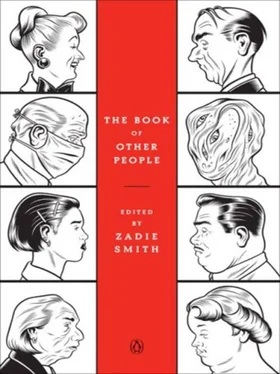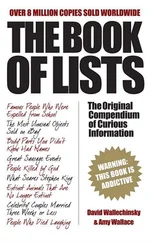More and more, she was beginning to believe that feelings were not complicated. They were not split into infinite constituent elements. Instead, often, the words were not all there. For Nigora was pragmatic. She had no time for souls with soul . No, Nigora did not believe in the indefinable. She believed that everything had a definition, if only the words could be found.
She remembered her father coming into the empty kitchen, letting his keys splay on the table. She remembered him biting the cap off a biro, as he made notes on a pile of manuscript. She remembered the first boy she ever slept with, Shuhrat, who used to swim while she lay and read on the grass by the river. He got out and lay beside her. She remembered his arms, the hair springing awry as it dried. But now she could not quite remember his face. She remembered his eyes were brown, but she could not remember his eyes. She only remembered that she knew they were brown.
And she missed her mother. In this new city, where Laziz was her one companion, she wanted to be home again. She wanted to be there in the kitchen, with her mother talking. And her father, as she talked, would pluck a stray hair from the base of her neck. There was a bowl of sweets on the kitchen table, underneath a tablecloth.
Nigora was a minor character.
She remembered writing her initials on the condensation in the car window, as her father drove her to piano lessons. She remembered the letters leaking downwards, obeying the line of gravity.
In the Gardens of Sunderland Café – renamed from its original Gardens of Allah, after Sunderland had been victorious in the 1973 FA Cup Final – Yaha made notes. For Yaha was not just a footballer. He had also received a university education. According to Yaha, in this world there were three ordinary systems of government: and he had invented a fourth, in which ‘virtue was always rewarded’. This was his ideal republic; its constitution formed his constant study, his refuge, his repose.
Nigora considered Yaha, and gave up. She stroked the hairs on the back of Laziz’s hands. Where could she go? Everywhere she went, there was her marriage.
The thing about you, her mother used to say, is that you never act out of character. You have no originality.
But Nigora knew this was not true. Because she was going to act out of character. She was going (thought Nigora) to be herself . And yet: how could she? How could she?
Judge Gladys Parks-Schultz by Heidi Julavits
On the final dusk of her life, Judge Gladys Parks-Schultz sits in a green velvet armchair reading – or rather not reading – a dull nautical mystery called Trouble Astern . Her chair faces a large window overlooking a long driveway lined with oaks. Beyond the furthest oak she can see the ocean and, riding the horizon, a house-lit island.
Behind her is a closed door.
From this vantage point, we cannot see Glad Parks-Schultz. She is blocked from view by her throne-like chair. Glad Parks-Schultz’s name suggests she is as dull as her mystery, an insincerely cheery woman compactly assembled, her bland orb face stacked directly atop her middle like a snowman’s. Her name suggests a curt and stilted manner. We see her barking monotone pleasantries, scaring children unintentionally. There is no sense arguing with this perception, even if there is only a little truth to it. We cannot see Glad Parks-Schultz, we can only hear her name in our heads, and her name has carved a lumpen shape for her there.
Glad Parks-Schultz tries repeatedly to lose herself in her mystery – a love affair, a sailing trip, a cabin, a knife – but cannot. Following the spat over the Christmas ham (‘How can you serve ham?’ her daughter had asked, a fair question; Sylvia was a vegetarian, something her mother had willfully forgotten), Glad Parks-Schultz finds herself in a familiarly pinched humor, her Holidays Gone Wrong mood. To go with this mood she plays in her head images from another Christmas, images from Fanny and Alexander , the only Bergman movie Glad has ever seen, and then only because Sylvia, a film major minoring in psychology and thus a self-appointed Bergman connoisseur, gave it to her as a Christmas present last year (‘This is more your speed,’ Sylvia had said, not uncritically). Fine if it was. Glad preferred her cultural enrichment free of anguish.
Outside her window (in which only she can see her faint reflection), the tree-lined drive extends to a distant point. It is the trick of perspective, thinks Glad Parks-Schultz, whose face, in the half-reflection in this dying-light time of day, appears longer and thinner than it might to anyone actually seeing her. Glad Parks-Schultz splays her book over her lap (only twenty more pages to go), giving up on the cowardly pair of lovers who have sailed and anchored in a cove, who have rowed their dinghy to the secluded beach, who are sneaking through the woods to a cabin to kill the woman’s husband with a knife. Why the husband is alone in the cabin is itself a bunch of self-reflexive foolery – he is a writer putting the final touches on a mystery book. She wants to ask the husband about this book – not the book he’s writing, but the book he’s in. What kind of mystery, she would ask him, makes you wait until the very end for a dead person? She is a district judge. She is not interested in crimes before they happen. She detests the why of most novels, which is the reason she sticks to mysteries. There is no emotional worrying of the why in mysteries – she cheated on him; he wanted her money – there is only the outcome, and the intricately explained how.
Meanwhile, Glad waits impatiently for Sylvia and her college boyfriend, her son Rod and his college girlfriend, all of whom she has banished from her house in a fit of ham pique, to return from the beach.
But once these people (her children and their temporary beloveds) are out of her sight she feels unseen, and not terribly easy as a result of it. Better to be loathed on a major holiday. Better to feel hated and alive. She is a stern district judge despised for her imperviousness to human context, to bad-luck stories. (‘No Glad-Handing Parks-Schultz’.)
The first snowflake of the season tumbles past the window. Glad huffs. She brushes the spine of Trouble Astern and prays for an escape from her tedious self. She’ll take any old diversion from this green velvet armchair – her mother’s favorite armchair, the upholstery warted with burn marks during her mother’s final days smoking in this very chair, dying in this very chair. She wants to be free of this Holiday Gone Wrong mood, this overheated pair of woolly mukluks.
This is where, Glad thinks, if I were, say, a less cooperative character in the relentlessly trouble-free Trouble Astern, I would set the writer-husband’s peg-leg afire (were he to possess a peg-leg), I would crush the whiny lover’s head with a winch handle. If impulsive violence isn’t part of my character, I could instead (as is the annoying tendency of the characters in Trouble Astern) flash backward to some baldly moral exemplar from my childhood. I could allow myself to be sucked backward and molecularly reassembled as a younger, sweeter person, available to be efficiently known by others via some traumatic event involving – preferably – my mother. This is the way of the world, Glad knows. She hears it from the lawyers every week. Mothers are, in some soupy way, to blame for every act of criminality.
Glad rubs at the spine as if it were some tinny magic lamp, promising instantaneous transport to an enthralling past. For the purposes of heightening the intrigue at this particular moment she thinks of this enthralling past as Her Secret Life. Everything has a secret life these days – birds, bees, alphabets, armoires, the characters in Trouble Astern – and Glad feels quite comfortable in claiming one for herself as well, even if she’s not entirely clear on what constitutes a secret exactly. If she’s never spoken of it, is it a secret, even if the content isn’t particularly combustible? After all, it’s not that she failed to tell this ‘secret’ on purpose (to deceive, protect, gain financial or emotional advantage, whatever); really it existed as a part of her past person that was inextricable from her current person, and so to know her was to know this about her.
Читать дальше












